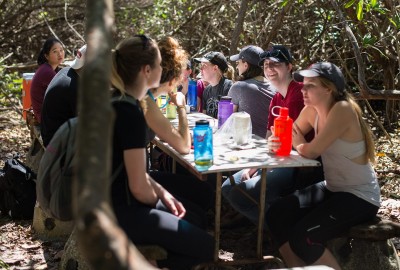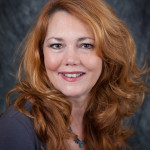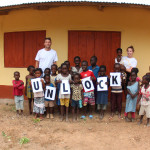
During spring break, many Boston University students participated in the Community Service Center’s Alternative Service Break trips, where they dedicated their time to volunteering in locations around the United States and Puerto Rico. These trips, despite their service-based goals, have recently drawn a lot of controversy in the media. Critics have referred to these acts of “voluntourism” in negative ways, expressing the contradiction of traveling for both pleasure and commselflessness.
Mark Denega, a 2009 graduate of the College of Communication, explored this disputed topic in his 2014 documentary “H.O.P.E. Was Here.” Rather than fully focusing on the negative aspects of alternative breaks, Denega sought to represent each side equally.
“I wanted to focus on the debate between the two because I thought it was more interesting, and I didn’t want to make a propaganda piece for the college,” Denega said. “I was very aware of the fact that I was leaking something that I would have to show to an audience, so I wanted it to be as captivating and as interesting as possible.”
Much of the debate over voluntourism stems from the short length of the trips. BU students who chose to participate in ASB, for example, volunteer for a single week. Giancarlo Rodriguez, a sophomore in the College of Arts and Sciences, coordinated a trip to Detroit and said most days only consisted of about five to six hours of volunteer work, with the rest of the day devoted to sightseeing. This limited amount of time that the volunteers spent helping in Detroit, Rodriguez said, posed a challenge.
“It was a bit heartbreaking for the direct service, because you would get to know these people and you would see them for just a few hours and never see them again,” he said. “We feel like we made as much of an impact as we could, but we wish we could have done more.”
Emily Lawson, a senior in CAS and an ASB program manager, acknowledged many of the same challenges and said the volunteers are often cognizant of this drawback.
“We’re aware of the fact that we’re not going to be any kind of saviors,” she said. “We’re only there for a week, so there’s only so much we can do. Our main goal is just for people to become more engaged citizens in the future.”
Lawson emphasized that she and her fellow coordinators worked to educate their groups to be mindful about over-documenting trips on social media.
“I think that the world we live in, obviously, happens a lot on the Internet,” she said. “Our ASB trips are also big on the Internet, in trying to connect with people through Facebook and all of that. But I think we also try to emphasize the fact that it should be a secondary thing. We don’t want people to, instead of doing the service on site, post pictures of them doing the service.”
In light of heightening criticism, BU’s Community Service Center is adapting its staff training to reinforce the service-based intentions of ASB trips. According to Lawson, the coordinators and volunteers were encouraged to be aware of the harmful effects of losing sight of the purpose of their respective trips.
“It’s something super important to be aware of, but the way that you approach the trip can really determine what will be the outcome,” she said. “If you’re aware of what you’re doing, you can make a big difference.”
Niki Shah, a junior in the Sargent College of Health and Rehabilitation Sciences and a co-coordinator of the Puerto Rico trip, felt that her training helped her group get the most out of their trip.
“Fortunately, I have never felt the voluntourism,” she said. “Our organization did an amazing job of making sure that we understood their mission and how we could assist them.”
With this educated approach in mind, she said, students felt they were able to better assist the organizations in the communities they visited, as well as gain an understanding of the cultures surrounding the areas.
“It’s changed it [my life] completely,” she said. “I am now very much educated on HIV/AIDS and the situation in the Puerto Rican area, as well as finding out my potential and understanding the culture and my inner drive to do service.”
Despite the partially critical lens of his documentary, Denega said the community services trips hold an important value.
“One of the most positive things I took away from going … is just the experience of seeing another culture and getting to meet people from different walks of life,” he said. “I was definitely critical myself of the trips that we went on, but sort of like the educational and cultural aspects of [them], they’re fantastic.”




